Top Vegan Athletes
Top Vegan Athletes
In recent years, there has been a remarkable surge in the popularity and adoption of veganism, a lifestyle that abstains from consuming animal products.
While traditionally, there may have been skepticism surrounding the ability of a plant-based diet to fuel athletic performance, a new wave of athletes is smashing these preconceived notions.
Today, we spotlight the trailblazers who have chosen a vegan lifestyle and are achieving unprecedented success in sports.
From endurance sports like marathon running and triathlons to explosive power sports like weightlifting and mixed martial arts, vegan athletes leave an indelible mark across diverse disciplines.
Their extraordinary achievements have inspired not only fellow athletes but millions of people worldwide to consider the potential benefits of embracing a vegan lifestyle.
In this article, we will explore the lives and accomplishments of some top vegan athletes who have redefined what it means to excel in sports without compromising their ethical principles.
Their stories testify to the power of plant-based nutrition and its ability to fuel peak performance.
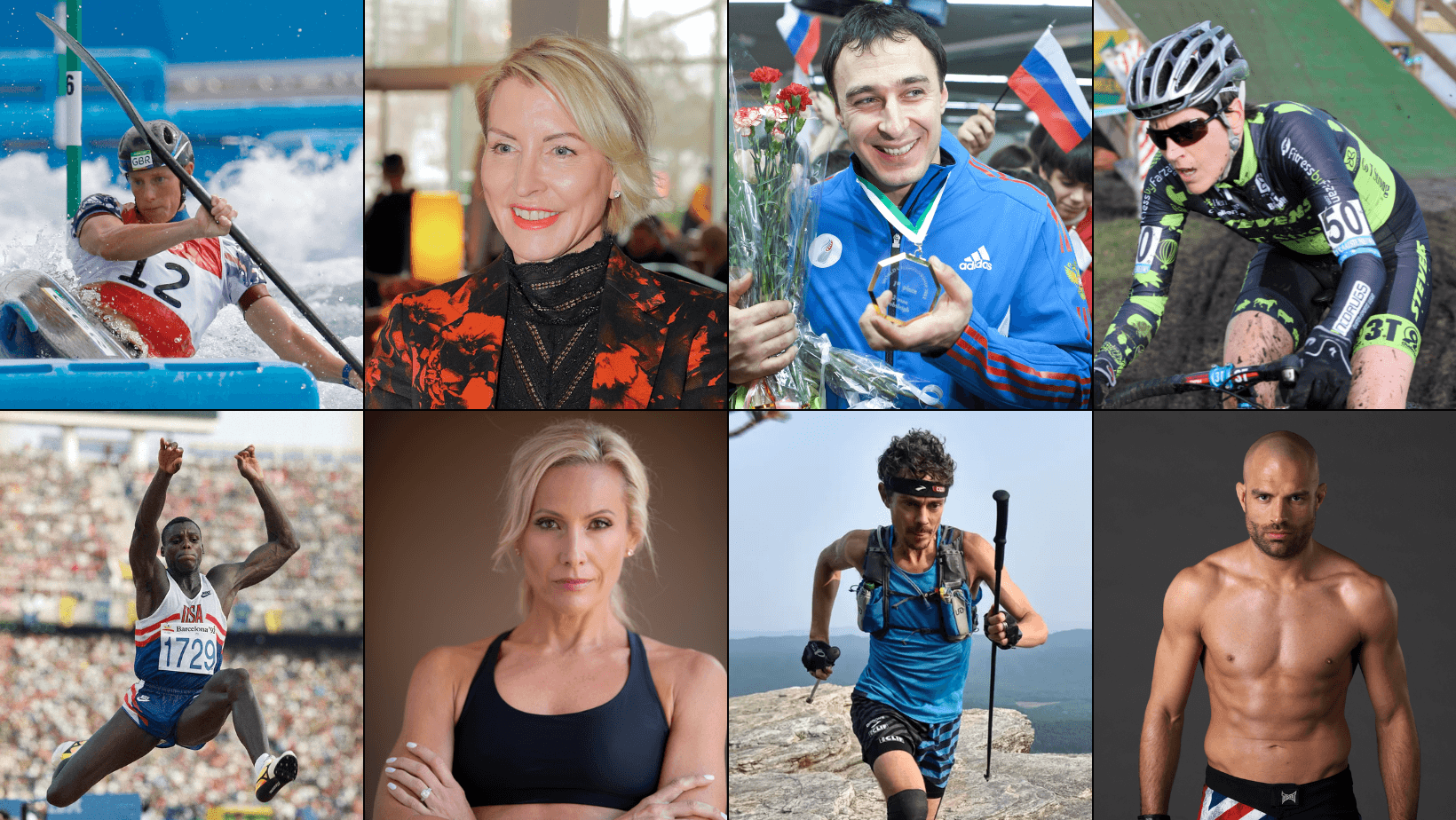
The Top Vegan Athletes Who Conquer Sports
In sports, where physical prowess and peak performance are paramount, a group of exceptional individuals have defied conventional wisdom by achieving remarkable athletic feats while adhering to a vegan lifestyle.
These trailblazers have shattered the notion that animal-based diets are necessary for success in sports, proving that plant-powered nutrition can fuel greatness.
Here are some top vegan athletes known for their achievements and dedication to a plant-based lifestyle:
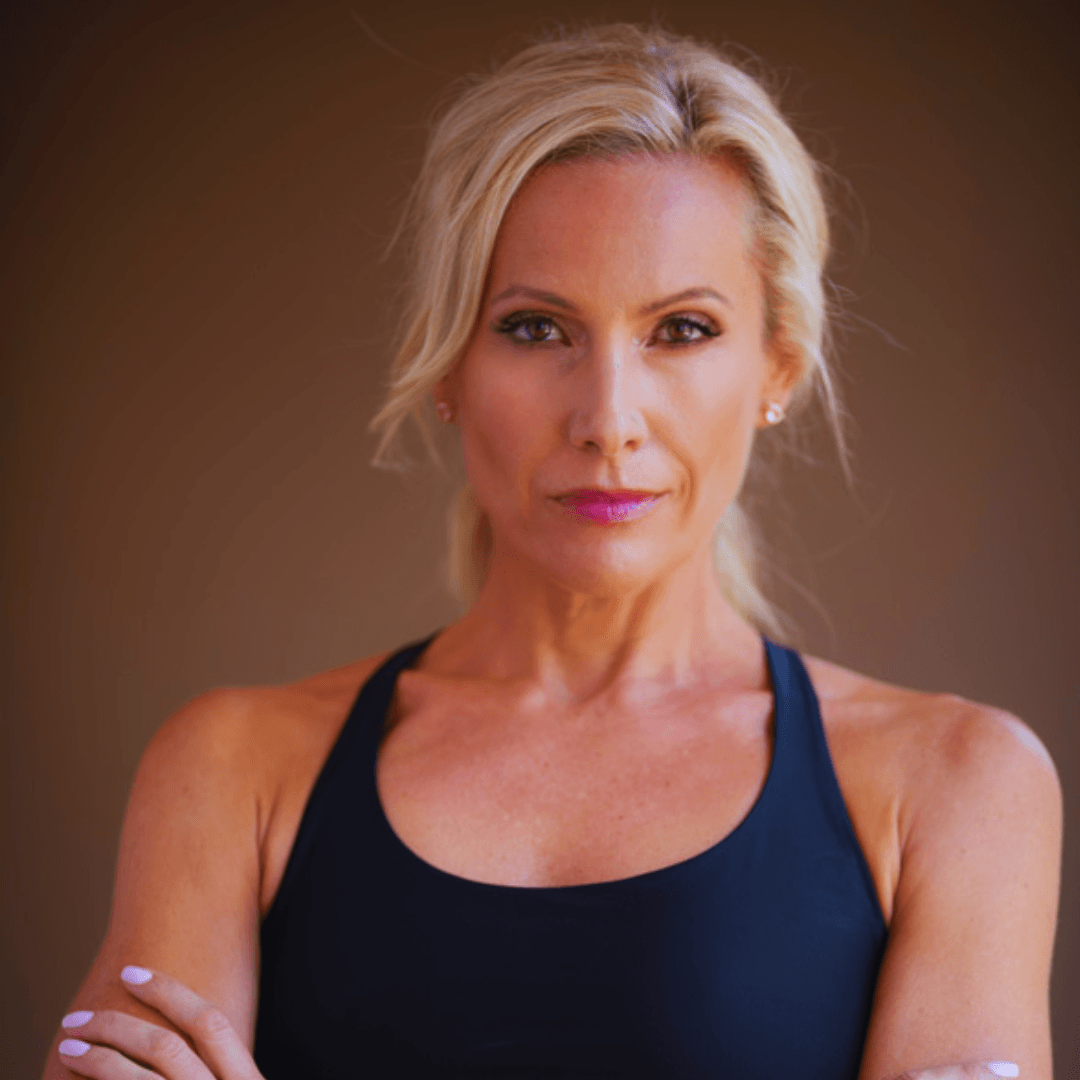
1. Dotsie Bausch
Dotsie Bausch is a remarkable former professional cyclist from the United States.
With her dedication and talent, she achieved a significant milestone in her career by winning a silver medal in the team pursuit at the 2012 Olympic Games.
Notably, her achievement was awe-inspiring as she became the oldest female cyclist to medal in Olympic history, accomplishing this feat at 39.
What sets Bausch apart is her commitment to a vegan lifestyle, which she credits for enhancing her recovery and performance as a cyclist.
Embracing plant-based nutrition, she has harnessed the power of a compassionate and sustainable diet to fuel her athletic endeavours.
Bausch has become influential in promoting the benefits of plant-based eating within the cycling community and beyond.
As a vegan athlete, Bausch emphasizes the positive impact of plant-based nutrition on her overall well-being and endurance.
She attributes her ability to maintain high energy levels, quick recovery, and sustained performance to her plant-based diet.
Bausch's advocacy extends beyond her achievements; she actively encourages others to explore the potential benefits of adopting a vegan lifestyle for optimal athletic performance.
Bausch's success on the Olympic stage and her dedication to promoting plant-based nutrition serves as an inspiration to athletes around the world.
Her story highlights the potential of a well-planned vegan diet to support exceptional athletic achievements and the ethical and environmental values that align with a compassionate and sustainable lifestyle.
Dotsie Bausch continues to be a role model, demonstrating that compassion and high-performance athleticism can go hand in hand.
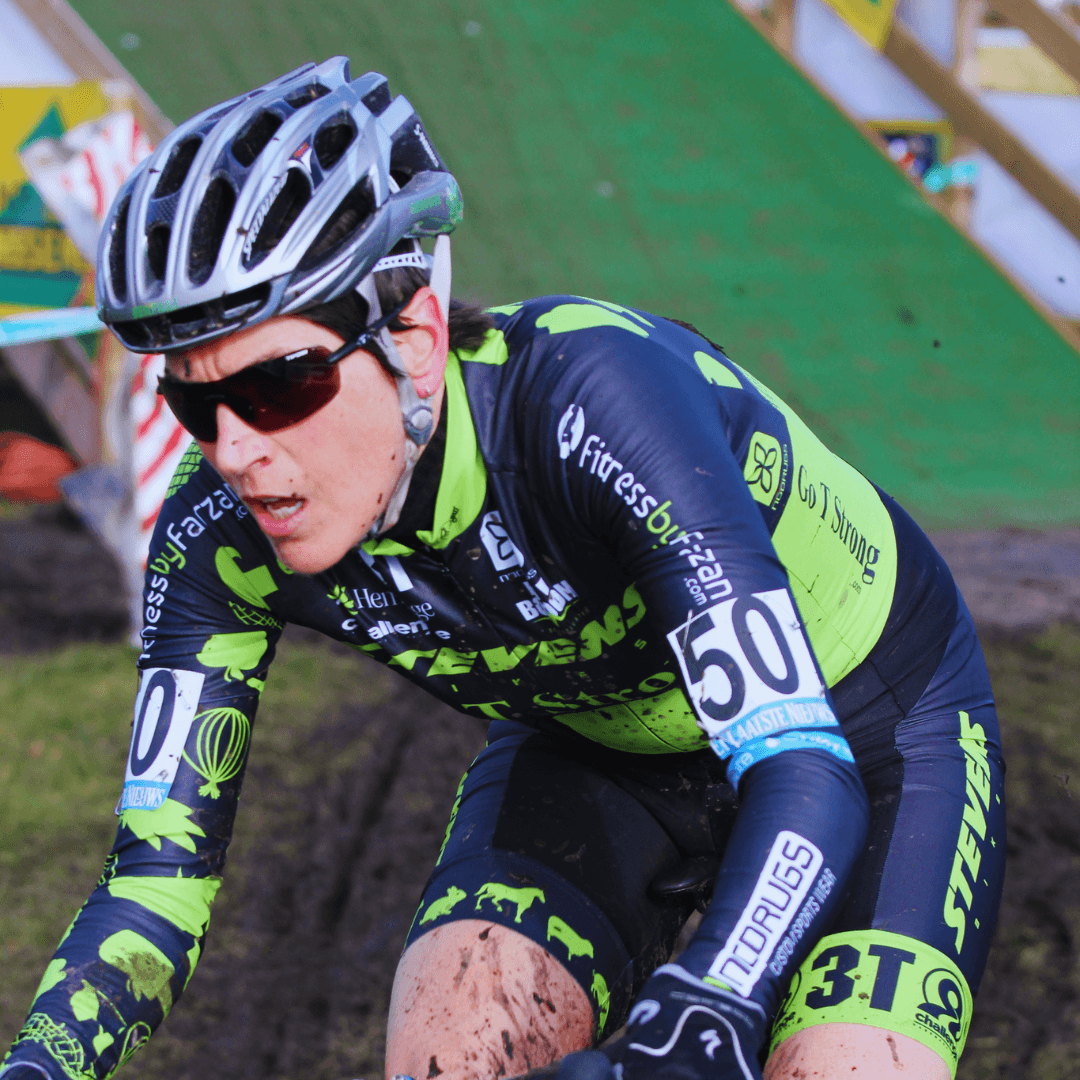
2. Christine Vardaros
Christine Vardaros is an accomplished American cyclocross racer who has made her mark in elite-level international competitions.
With a passion for the sport and a commitment to promoting veganism, Vardaros has showcased the power of plant-based nutrition in fueling her high-intensity cycling endeavours.
As a vegan athlete, Vardaros has become an influential advocate for the benefits of a plant-based lifestyle.
She has demonstrated that plant-based nutrition can provide the necessary fuel, endurance, and recovery for demanding cyclocross races.
Through her experiences, Vardaros has shattered misconceptions that a vegan diet may lack the essential nutrients for athletic performance.
Vardaros has embraced the ethical and environmental principles of veganism and incorporated them into her athletic journey.
Her dedication to plant-based nutrition inspires other athletes to explore the potential benefits of a compassionate and sustainable lifestyle.
Competing at the elite level in cyclocross, Vardaros has shown that plant-based nutrition can support peak performance.
Her accomplishments on the international stage highlight the compatibility of a vegan diet with high-intensity sports, debunking the notion that animal products are necessary for success in cycling.
Through her advocacy, Vardaros has raised awareness about the benefits of veganism and inspired others to consider plant-based options for optimal health, athletic performance, and overall well-being.
Christine Vardaros remains prominent in the cyclocross community, demonstrating that a compassionate and sustainable lifestyle can thrive alongside competitive sports.

3. Scott Jurek
Scott Jurek, an American ultramarathon runner, has left an indelible mark on endurance running.
Renowned for his exceptional achievements, Jurek has secured victory in several highly regarded races, most notably the Western States 100-Mile Endurance Run, where he triumphed an unprecedented seven consecutive times.
Demonstrating his unwavering determination and remarkable stamina, he set the American record for the longest distance run in 24 hours, covering a staggering 165.7 miles.
Notably, Jurek's success is intertwined with his commitment to a plant-based diet.
As an advocate for veganism, he attributes his endurance and recovery abilities to the power of plant-based nutrition.
Jurek has found that he can maintain optimal performance while supporting his overall health and well-being by fueling his body with whole, plant-based foods. Jurek's embrace of a plant-based lifestyle extends beyond his achievements.
He has used his platform to inspire and educate others about the benefits of plant-based eating, showcasing that a compassionate and sustainable diet can fuel exceptional athletic performance.
Through his journey as a vegan athlete, Jurek has shattered the notion that animal products are necessary for peak endurance.
His accomplishments testify to the potential of plant-based nutrition to enhance athletic performance, supporting the notion that a well-planned vegan diet can provide the necessary nutrients and energy required for gruelling ultramarathons.
Scott Jurek's remarkable achievements and dedication to veganism have solidified his status as a role model in the ultramarathon community.
His story highlights the symbiotic relationship between plant-based nutrition and endurance running, inspiring athletes to explore the potential benefits of a compassionate and sustainable lifestyle while pursuing their athletic endeavours.
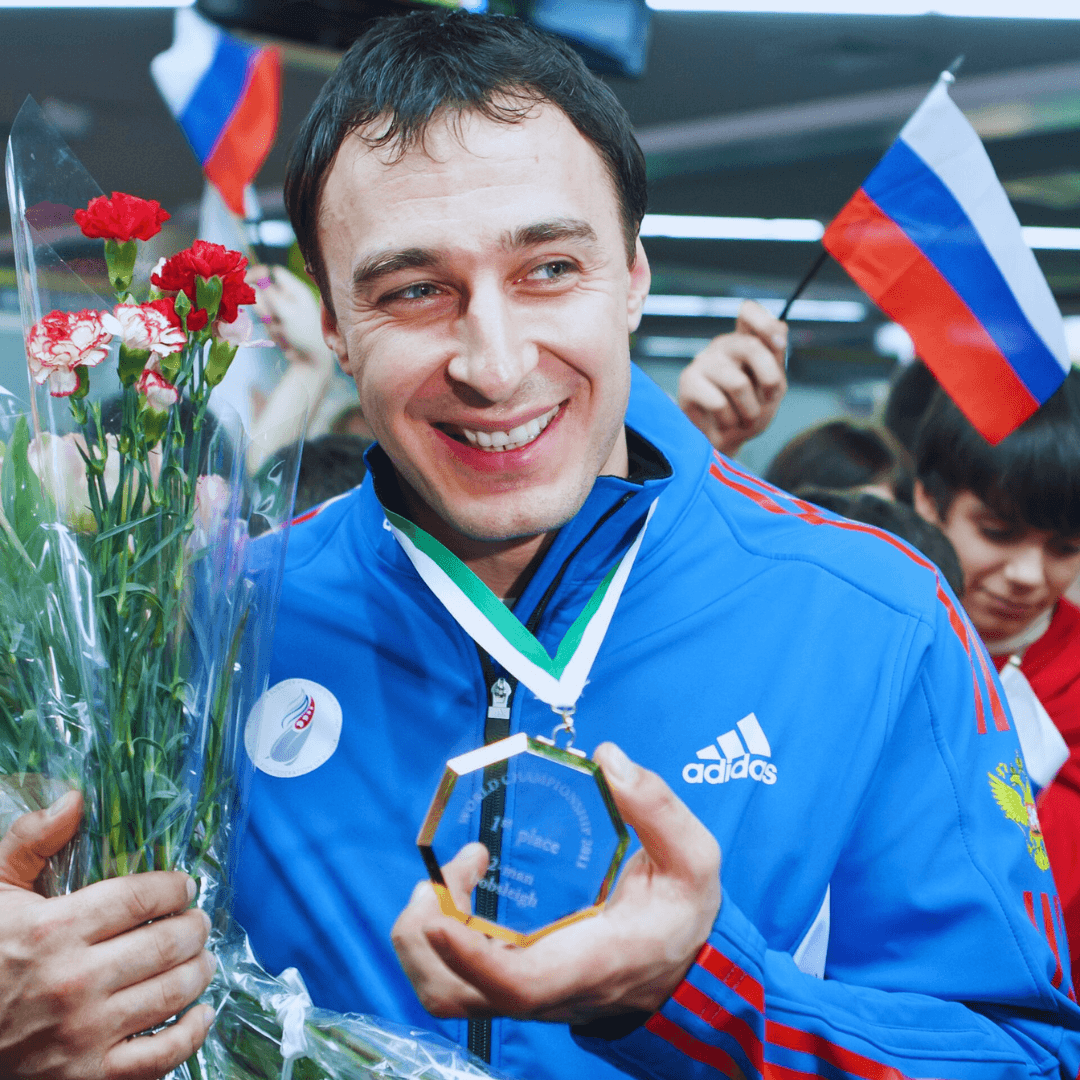
4. Alexey Voyevoda
Alexey Voyevoda, a remarkable Russian athlete, has showcased his exceptional skills in two distinct sports: bobsleigh and arm wrestling.
Voyevoda has achieved numerous accolades, standing atop podiums at both the Olympic Games and World Championships.
His achievements include winning gold medals in bobsleigh, a testament to his incredible speed, strength, and teamwork.
What sets Voyevoda apart is his adoption of a vegan diet in 2017.
Embracing the power of plant-based nutrition, he has experienced firsthand the benefits it can bring to his athletic performance and overall well-being.
Since transitioning to a vegan lifestyle, Voyevoda has become a passionate advocate for plant-based nutrition within the athletic community.
By championing the virtues of a vegan diet, Voyevoda has shattered stereotypes that animal products are necessary for athletic success.
His bobsleigh and arm wrestling achievements prove that plant-based nutrition can provide the fuel, strength, and recovery needed to excel in high-intensity sports.
Voyevoda's journey as a vegan athlete has transformed his life and inspired others to consider the benefits of a plant-based lifestyle.
He has become a prominent figure in promoting plant-based nutrition, encouraging fellow athletes to explore its positive impact on their performance and overall health.
Alexey Voyevoda's bobsleigh and arm wrestling achievements and his dedication to veganism exemplify the potential synergy between a compassionate and sustainable diet and athletic excellence.
His advocacy catalyzes change, encouraging athletes worldwide to consider the benefits of embracing plant-based nutrition to elevate their performance and well-being.
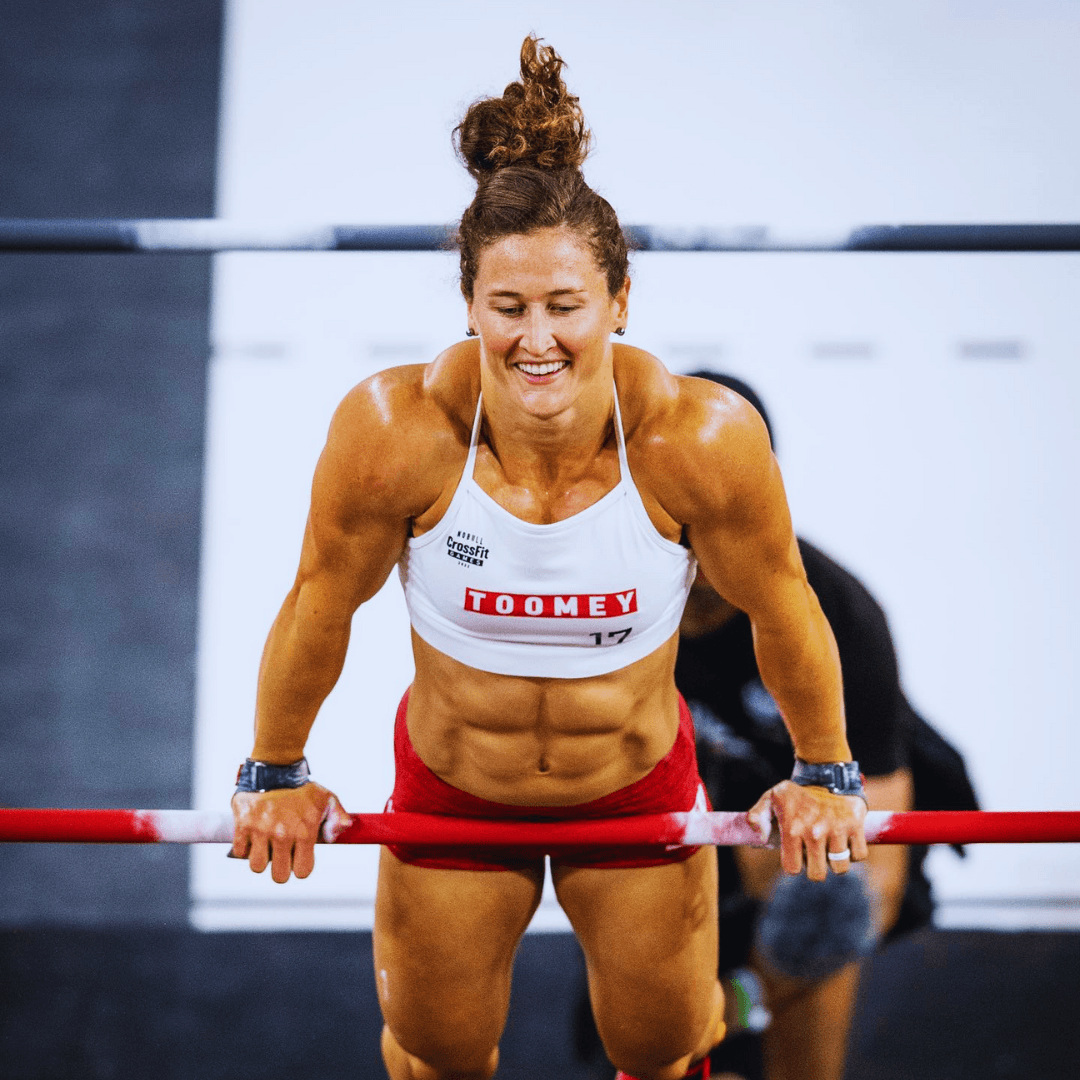
5. Tia-Clair Toomey
Tia-Clair Toomey, an Australian powerhouse in the world of CrossFit, has solidified her status as one of the fittest women on the planet.
With an impressive track record, she has emerged victorious multiple times at the prestigious CrossFit Games, showcasing her exceptional athleticism and determination.
Toomey, known for her unwavering commitment to excellence, has also set several sports records.
What sets Toomey apart is her embrace of a vegan diet. By adopting a plant-based lifestyle, she has discovered its positive impact on her performance and recovery as a CrossFit athlete.
Fueling her body with nutrient-dense plant-based foods, Toomey has found that she can optimize her athletic capabilities while maintaining a strong foundation of overall health and well-being.
Toomey's success challenges the misconception that animal products are essential for elite athletic performance.
Her CrossFit achievements and adherence to a vegan diet demonstrate the compatibility of plant-based nutrition with high-intensity training and competition.
As an advocate for plant-based eating, Toomey has inspired countless individuals to explore the benefits of a compassionate and sustainable lifestyle.
Her story is a powerful reminder that a well-planned vegan diet can provide the necessary nutrients, energy, and recovery support to excel in demanding sports like CrossFit.
Tia-Clair Toomey's dominance in CrossFit and her commitment to veganism position her as a role model for athletes seeking optimal performance while embracing a compassionate approach to nutrition.
Her journey inspires others, inviting them to consider the potential benefits of plant-based nutrition in their athletic pursuits.

6. Heather Mills
A British athlete, Heather Mills, has overcome tremendous challenges to succeed in skiing. Initially competing in alpine skiing, Mills transitioned to Paralympic skiing after a leg amputation.
Despite this obstacle, she has emerged as a formidable force in her sport, showcasing her exceptional skill and determination. What sets Mills apart is her advocacy of veganism.
As a passionate advocate for plant-based nutrition, she actively promotes the benefits of a vegan lifestyle, particularly in athletic performance.
Mills herself has completed numerous marathons and triathlons, demonstrating the capabilities of a well-planned plant-based diet in endurance sports.
Mills' achievements challenge preconceived notions about the limitations of a vegan diet in high-intensity activities.
Her successes in alpine skiing, Paralympic skiing, and endurance events highlight the potential of plant-based nutrition to fuel athletic performance and support optimal recovery.
Through her advocacy work, Mills encourages others to consider veganism's ethical and environmental benefits while emphasizing its positive impact on health and athletics.
Her journey exemplifies the resilience and determination required to excel in adversity while promoting a compassionate and sustainable lifestyle.
Heather Mills' accomplishments in alpine skiing, Paralympic skiing, and endurance events, coupled with her dedication to veganism, inspire athletes worldwide to explore the potential of plant-based nutrition in achieving their own athletic goals.
She is a beacon of resilience, showcasing that incredible feats can be completed in the face of adversity with determination and a plant-based lifestyle.
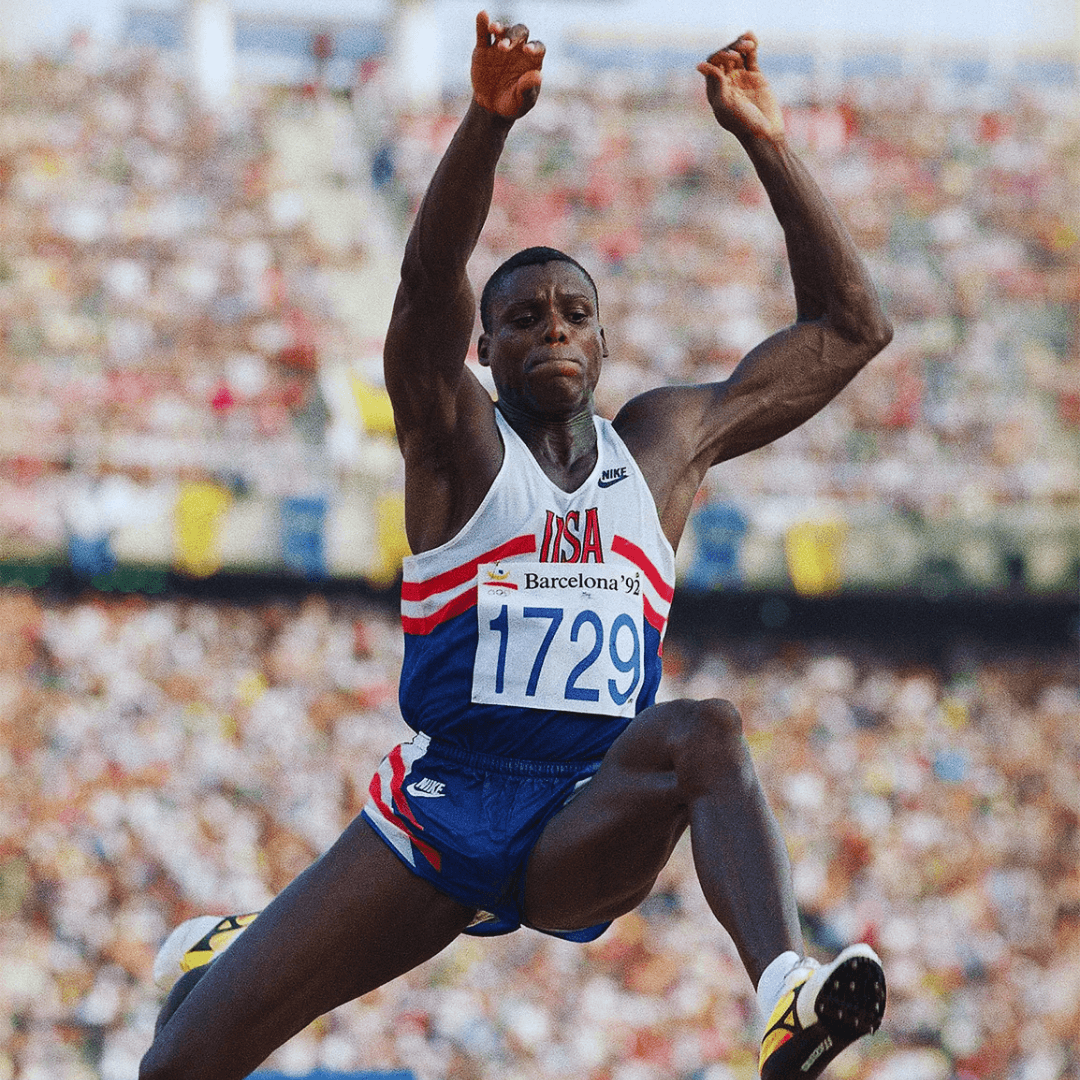
7. Carl Lewis
Carl Lewis, the legendary American track and field athlete, has left an indelible mark on the world of sports.
Widely considered one of the greatest Olympians of all time, Lewis's achievements are nothing short of extraordinary.
He amassed multiple Olympic gold medals throughout his career and set several world records in sprinting and long jump events.
What sets Lewis apart is his commitment to a vegan diet, which he followed for a significant portion of his athletic career.
He attributes his success to the principles of a plant-based lifestyle, highlighting its positive impact on his performance and overall well-being.
By nourishing his body with plant-based nutrition, Lewis found he could optimize his athletic abilities and achieve peak performance.
Lewis's accomplishments testify to the compatibility of a vegan diet with high-level athletic performance.
His achievements on the Olympic stage and his longevity in the sport are a testament to the potential benefits of plant-based nutrition in endurance, strength, and recovery.
As an advocate for a plant-based lifestyle, Lewis has inspired countless athletes and individuals to explore the advantages of compassionate and sustainable eating habits.
His story challenges the notion that animal products are necessary for athletic greatness, proving that a well-planned vegan diet can provide the essential nutrients and fuel for exceptional achievements in track and field.
Carl Lewis's incredible athletic feats, coupled with his dedication to a vegan lifestyle, continue to inspire athletes around the world.
He exemplifies the potential of plant-based nutrition to fuel exceptional performance, making him an enduring symbol of success and advocating the benefits of a compassionate and sustainable approach to sports and life.
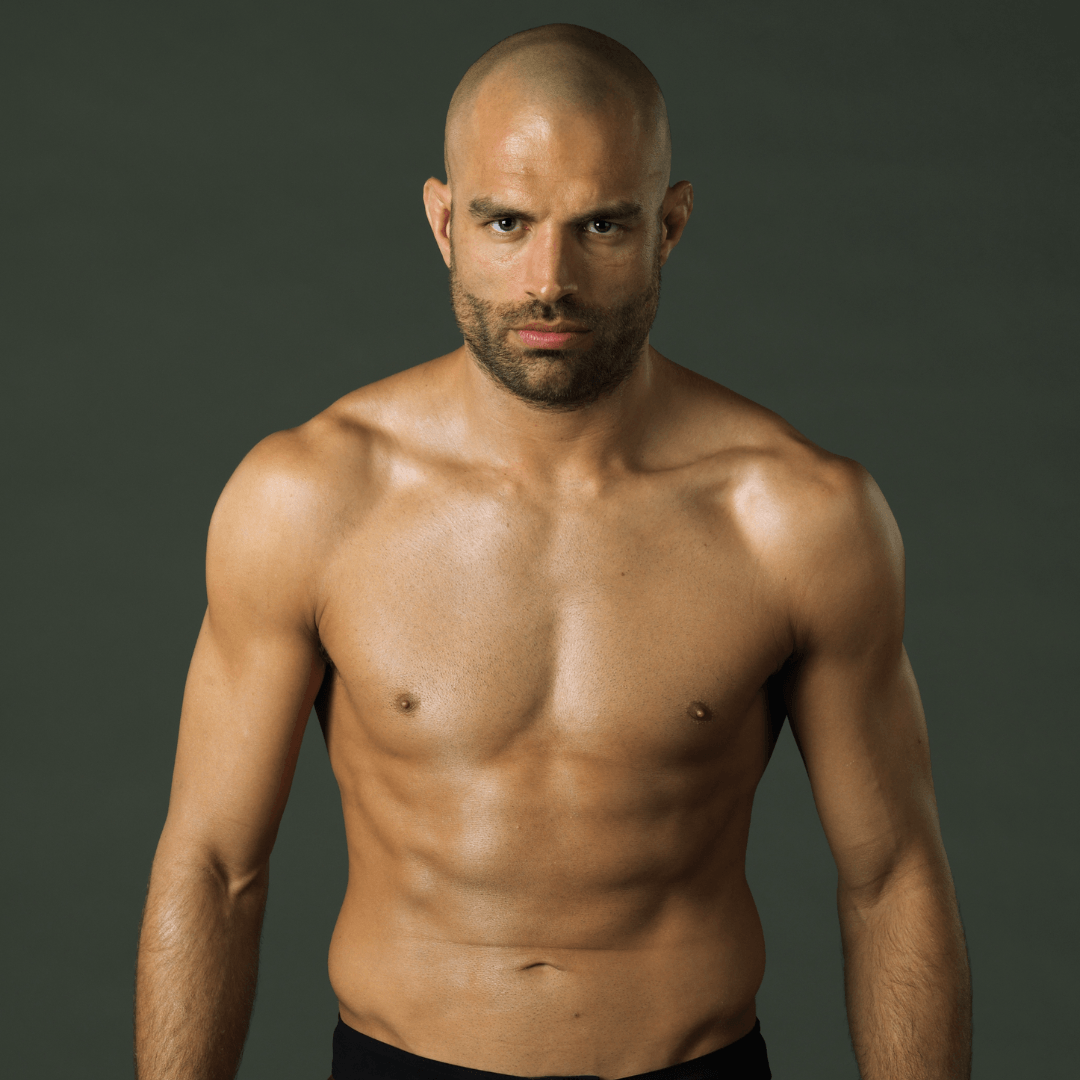
8. James Wilks
James Wilks, a retired British-American mixed martial artist, has profoundly impacted both inside and outside the cage. As the Ultimate Fighter television series winner, Wilks showcased his formidable skills and determination in MMA.
However, a career-threatening injury led him to adopt a vegan diet, transforming his health and athletic performance.
After embracing a plant-based lifestyle, Wilks experienced significant improvements in his overall well-being and performance as an athlete.
The shift to a vegan diet aided his recovery and enhanced his endurance, strength, and overall physical condition. Inspired by his transformative journey, Wilks produced the groundbreaking documentary “The Game Changers.”
Through “The Game Changers,” Wilks sheds light on the benefits of plant-based nutrition in athletic performance. The documentary features world-class athletes who thrive on plant-based diets and challenges the notion that animal products are essential for peak performance.
Wilks's work has sparked conversations and inspired individuals worldwide to reconsider their dietary choices and explore the potential advantages of plant-based eating.
Wilks's personal experience and advocacy have positioned him as a prominent figure in the intersection of sports and plant-based nutrition.
His journey is a testament to the transformative power of a well-planned vegan diet in physical health and athletic performance.
By sharing his story and producing “The Game Changers,” Wilks has become a catalyst for change, encouraging athletes and individuals to explore the benefits of plant-based nutrition for optimal health, athletic performance, and overall well-being.

9. Fiona Pennie
Fiona Pennie, a British slalom canoeist, has etched her name in the annals of elite-level canoeing.
With her exceptional skill and determination, Pennie has represented Great Britain in multiple Olympic Games and World Championships. In 2015, she adopted a plant-based diet, significantly impacting her athletic journey.
Pennie's embrace of a plant-based lifestyle has aligned with her ethical values and proven harmonious with her sporting success.
Since transitioning to a vegan diet, she has achieved notable accomplishments in her sport, highlighting the compatibility of veganism with high-performance canoeing.
Pennie has found that she can maintain optimal performance, endurance, and recovery by nourishing her body with plant-based nutrition.
Her achievements in Olympic Games and World Championships testify to the potential benefits of a well-planned vegan diet in supporting peak athletic performance.
Pennie's dedication to veganism extends beyond her achievements.
She inspires fellow athletes and the wider community, demonstrating that a compassionate and sustainable lifestyle can go hand in hand with sporting excellence.
Her story challenges the notion that animal products are necessary for success in canoe slalom, emphasizing the importance of proper nutrition and individual choices in achieving one's athletic goals.
Fiona Pennie's achievements in canoe slalom, combined with her advocacy of plant-based nutrition, have positioned her as a role model within the sport.
Her journey catalyzes athletes to explore the potential benefits of a plant-based lifestyle for their well-being and the ethical considerations that align with a compassionate and sustainable approach to life.
Conclusion
In conclusion, the world of sports is home to a growing number of exceptional vegan athletes who have shattered misconceptions and achieved remarkable success.
These athletes, across various disciplines, serve as inspiring role models, showcasing the potential of a plant-based lifestyle to fuel high-level performance, endurance, and strength.
The stories of these top vegan athletes inspire athletes and individuals worldwide to rethink their dietary choices, explore the potential of plant-based nutrition, and embrace a compassionate and sustainable lifestyle.
As the recognition of veganism in sports continues to grow, these athletes continue to pave the way, demonstrating that excellence on the field can be achieved while aligning with the values of compassion, sustainability, and respect for all living beings.
I trust you enjoyed this article about the Top Vegan Athletes. Please stay tuned for more blog posts to come shortly. Take care!
JeannetteZ
>>> Please click here to read my Vegan Travel Guides To World Destinations <<<
>>> Want To Learn How To Create Delicious, Cruelty-Free, Healthy AND 100% Vegan Meals? Try These Awesome Vegan Cooking Courses With A Free 7-DAY MEMBERSHIP<<<
Your Opinion Is Important To Me
Do you have thoughts, ideas, or questions? I would love to hear from you. Please leave me your questions, experiences, and remarks about the Potential Health Benefits Of Veganism article in the comments section below. You can also reach me by email at Jeannette@LivingTheVeganLifestyle.org.
Disclosure
This post may contain affiliate links. I earn from qualifying purchases as an Amazon Associate and other affiliate programs. Please read my full disclosure.
You might also enjoy these blog posts:
Best Vegan Athletes Nutrition Guide
Best Meal Plans For Vegan Athletes
Best Vegan Athletes' Benefits Of A Vegan Diet
Why You Should Go Vegan – A Guide
The Definitive Guide To Vegan Fashion And Style

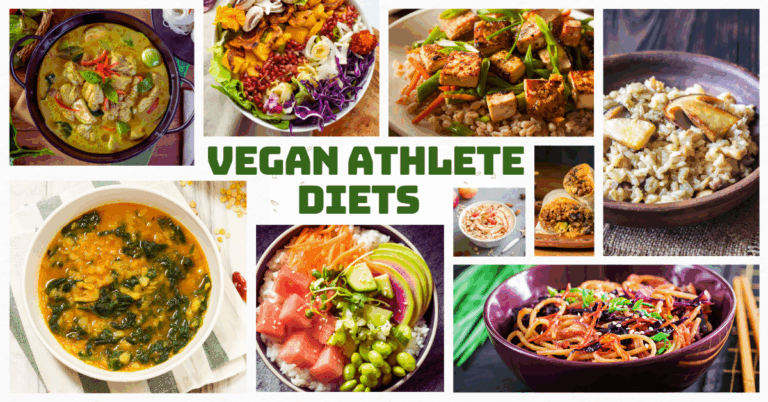
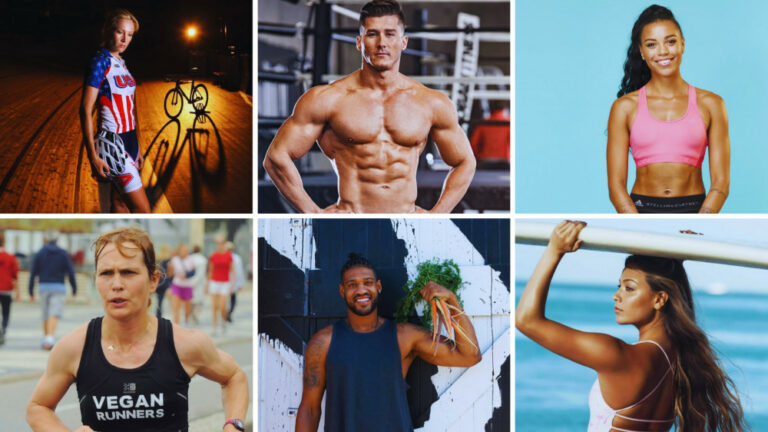
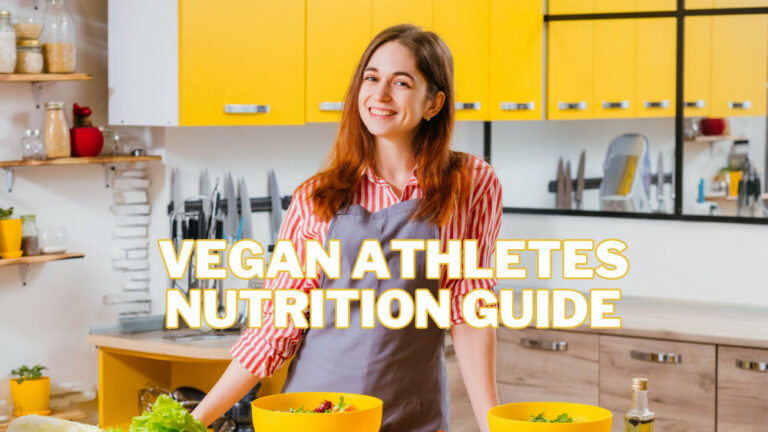
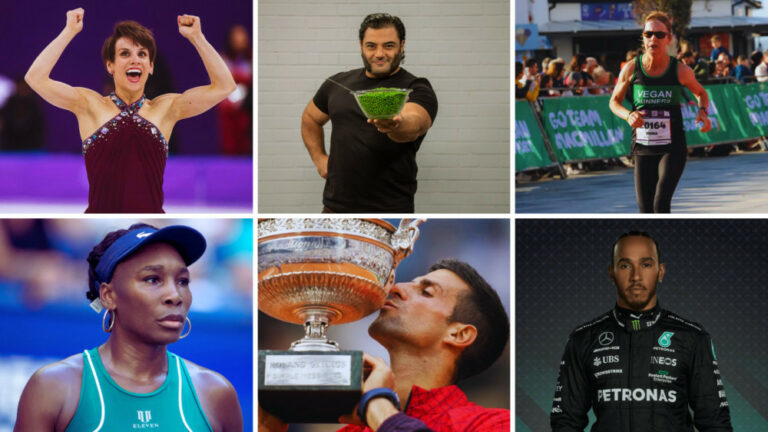
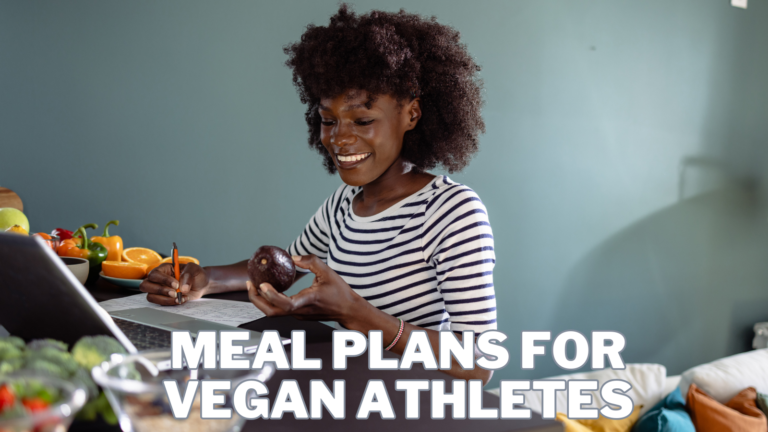
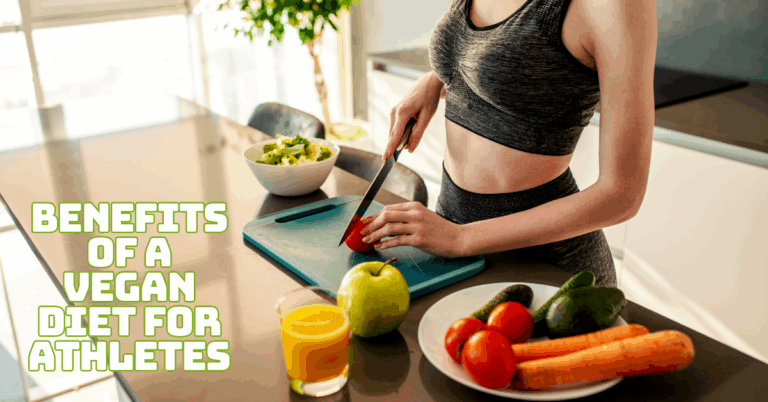
I discovered the benefits of a vegan lifestyle a few years ago. I must say that my first few months I noticed a definite increase in energy and a significantly loss of weight. Not only was my body looking and feeling better my mind also seemed lighter and more positive. I was more outgoing with my increased energy. It was not long before I was convinced of the benefits of choosing a vegan lifestyle. It was truly eye-opening, and a life-changing decision. Thank for the great read and the great memories!
Thank you for sharing your fantastic experience with living the vegan lifestyle. I feel the same way. I discovered the benefits of eating raw vegan in the 90s when I faced surgery. I didn’t want it done, so I switched my diet to raw. It was a thrilling feeling. I had so much more energy, and the pain was gone within a couple of months. Let’s spread the word about the vegan lifestyle.
Take care
Jeannette